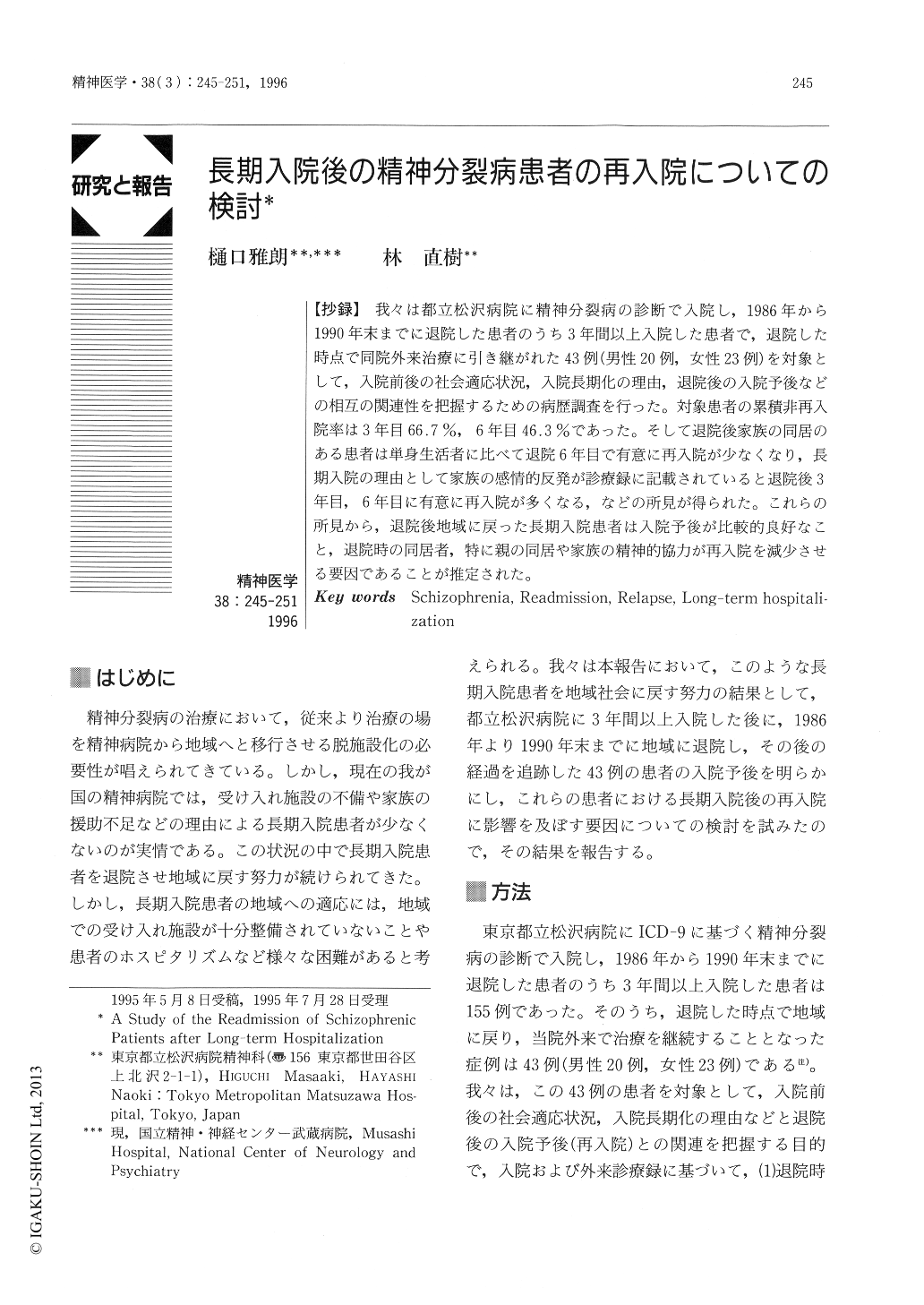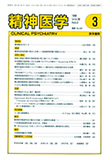Japanese
English
- 有料閲覧
- Abstract 文献概要
- 1ページ目 Look Inside
- サイト内被引用 Cited by
【抄録】我々は都立松沢病院に精神分裂病の診断で入院し,1986年から1990年未までに退院した患者のうち3年間以上入院した患者で,退院した時点で同院外来治療に引き継がれた43例(男性20例,女性23例)を対象として,入院前後の社会適応状況,入院長期化の理由,退院後の入院予後などの相互の関連性を把握するための病歴調査を行った。対象患者の累積非再入院率は3年目66.7%,6年目46.3%であった。そして退院後家族の同居のある患者は単身生活者に比べて退院6年目で有意に再入院が少なくなり,長期入院の理由として家族の感情的反発が診療録に記載されていると退院後3年目,6年目に有意に再入院が多くなる,などの所見が得られた。これらの所見から,退院後地域に戻った長期入院患者は入院予後が比較的良好なこと,退院時の同居者,特に親の同居や家族の精神的協力が再入院を減少させる要因であることが推定された。
The authors investigated the case history of 43 patients (male: 20, female: 23), who had been diagnosed as schizophrenia based on ICD-9, and had been hospitalized for more than 3 years in Tokyo Metropolitan Matsuzawa Hospital, and discharged in the period from 1986 to 1990, with the purpose to discern the factors influencing on the need of readmission after the prolonged hospitalization. The accumulated non-readmission rate of the patients was 66.7% at the 3rd year and 46.3% at the 6th year after leaving the hospital.The readmission rate of those who lived together with a family decreased significantly at the 6th year after the discharge, compared to those who lived alone. The readmission rate increased significantly at the 3rd and 6th year after the hospital when emotional conflict between the patient and the family had been recorded in the chart. These findings suggest that the readmission prognosis is relatively good for patients who are discharged after long hospitalization, and that to decrease the readmission rate, the fact that patients has a family, especially parents, to live with is a significant factor.

Copyright © 1996, Igaku-Shoin Ltd. All rights reserved.


